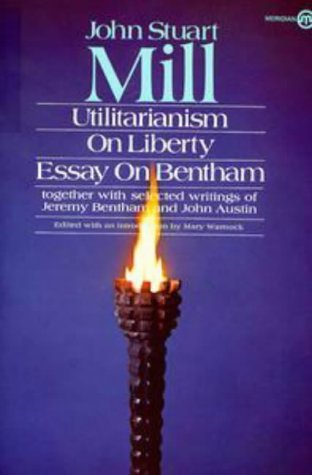John Stuart Mill's Utilitarianism is one of the most important, controversial, and suggestive works of moral philosophy ever written. Mill defends the view that all human action should produce the greatest happiness overall, and that happiness itself is to be understood as consisting in 'higher' and 'lower' pleasures. This volume uses the 1871 edition of the text, the last to be published in Mill's lifetime. The text is preceded by a comprehensive introduction assessing Mill's philosophy and the alternatives to utilitarianism, and discussing some of the specific issues Mill raises in Utilitarianism. This volume also includes an analysis of the text, substantial endnotes, suggestions for further reading, and a full bibliography.
John Stuart Mill (1806-73) was educated by his father and through his influence obtained a clerkship at India House. He formed the Utilitarian Society which met to read and discuss essays, and in 1825 he edited Bentham’s Treatise upon Evidence. In 1826 he suffered an acute mental crisis and found that poetry helped him recover the will to live, particularly the work of Wordsworth. Having reconsidered his aims and those of the Benthamite school, he met Harriet Taylor and she inspired a great deal of his philosophy. They married in 1851. Utilitarianism was published in 1861 but before that Mill published his System of Logic (1843), Principles of Political Economy (1848) and On Liberty (1839). His other works include his classic Autobiography (1873). Mill retired in 1858 and became the independent MP for Westminster from 1865 to 1868. He spent the rest of his life in France and died in Avignon.
Jeremy Bentham (1748-1832) was educated at Westminster and Queen’s College, Oxford. He was called to the bar but found the work morally and intellectually distasteful and set out to theorize a simple and equitable legal system. The law of utility, for which he is best remembered, states that the goodness of a law can be measured in accordance with the means in which it subserves the happiness of the individual. His democratic views are expressed in his Constitutional Code (1830). With J. S. Mill he founded the Westminster Review, the organ of the philosophical radicals. True to his principles, Bentham left his body to be dissected and his skeleton is on view at University College London.
